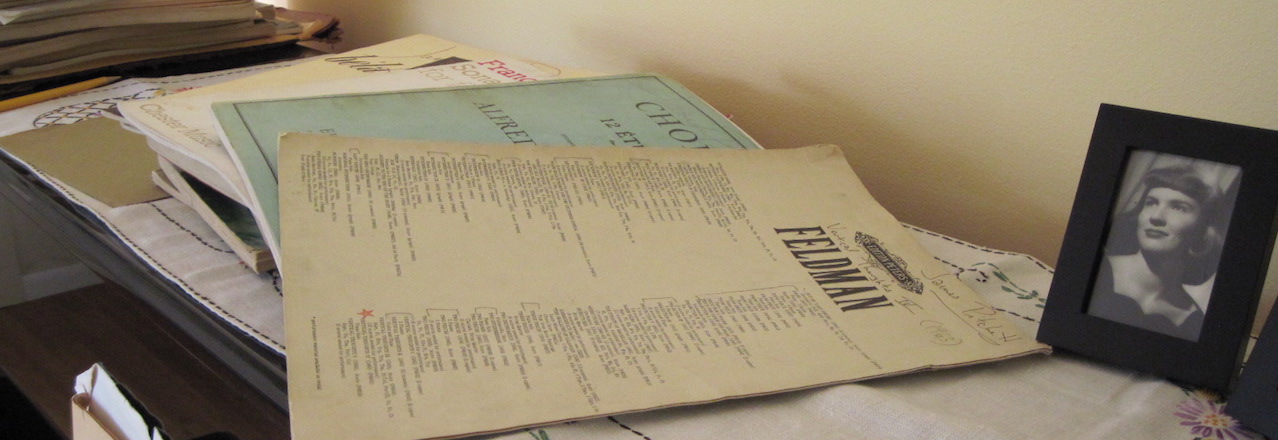This Sunday’s playlist was a single piece: Cage’s Cheap imitation. This is one of my favorite Cage works, first and foremost because of its beautiful simplicity, but also because the piece is so obviously a labor of love. As I said in my liner notes for the Mode recording of the violin version, the subversiveness of the piece comes from love, not philosophy.
I bought the score ages ago and when I was in graduate school I used to play it fairly regularly (for three years, my roommate had a piano). I found my copy of the score, and I hope that C. F. Peters no longer provides it in such a cheesy format — a poor-quality photocopy reduction of the manuscript (many of the accidentals are barely legible), in a stiff binding that, after 25 years, still won’t lie flat on the music rack. Yesterday I decided to play the first movement and then just kept going. Being largely monophonic, it’s pretty simple, although keeping the line even throughout can be a challenge in places. Plus, it’s just so exposed. The ending, with the death of Socrates, is as gripping in Cage’s version as in Satie’s original: it just floats off into space.
Cage played the piece himself in the 1970s. I found a shaky, out-of-focus, handheld video on YouTube of him performing parts of it. I noticed that he uses the left hand much more than I tend to, and that probably helps the evenness of line (I have to work with that). What should be clear to everyone is the loving care with which he plays this, his valentine to Satie.

Pingback: Looking deeper into John Cage's Cheap Imitation - James Pritchett